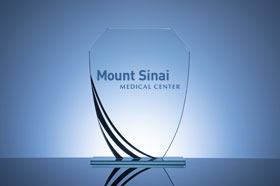- Patient Information
- Admission Information
- Billing & Financial Information
- Campus Map
- Center for Travel Medicine
- Contracted Health Plans
- Eldercare (PACE) Program
- Financial Assistance Information
- Guidelines for Surgical Patients
- International Patients
- Medical Records
- Notice of Privacy Practices
- On-Site Pharmacy
- Patient Information
- Patient Information Form
- Patient Rights and Responsibilities
- Patient Safety Measures
- Preparing for your Doctor’s Visit
- Price Transparency
- Respiratory Hygiene and Facial Coverings Policy
- Service Animal Information
- Share Medical Images
- Text Messaging & Calls Terms and Conditions
- Tobacco-Free Policy
- Your Secure Electronic Medical Record
- Pay my Bill on MyChart
- Visitor Information
Service Animal Information
Can I bring my service animal to Mount Sinai Medical Center?
Mount Sinai Medical Center welcomes the use of service animals by any person with a disability. A disability, under the Americans with Disabilities Act, is defined as any physical or mental impairment that limits one or more major life activities, such as breathing, hearing, walking or caring for oneself. A service animal is a dog or miniature horse that is individually trained to do work and perform tasks for the benefit of an individual with a disability, including physical, sensory, psychiatric, intellectual, or other mental disability. A service animal is not a pet because it is specially trained to help a person overcome the limitations caused by the disability. Other species of animals, whether wild or domestic, trained or untrained, are not considered service animals for the purposes of this definition. These animals, along with pets, are generally excluded from the medical center.
Can I bring my comfort or emotional support animal to the medical center?
No. According to the ADA, comfort or emotional support animals are not service animals. Service animals receive special training to do specific tasks that a person may not be able to do because of their disability. The ADA does not consider the sense of companionship, comfort or security that animals may provide a “trained task.”
Do I have to provide identification or information about my service animal?
Mount Sinai does not require information about a person’s disability or proof of the service animal’s training. If a staff member is not sure that an animal is a service animal, you may be asked:
Is the animal a service animal?
What tasks or services has the animal been trained to perform?
You should bring proof of current rabies and other vaccinations as directed by the service animal’s veterinarian and proof of county licensure, along with the name and telephone number of your veterinarian. Service animals accompanying patients and visitors will have numerous interactions with staff, patients, and visitors. We are committed to enforcing infection control standards and ensuring that we take the appropriate measures to keep our patients, visitors and staff safe.
What are my responsibilities?
- You are responsible for the feeding, toileting, care and behavior of your service animal at all times. You should have a plan for your service animal in case you are unable to provide care at any point, or if you must go to an area of the medical center where service animals are not allowed. Mount Sinai employees may not take care of a service animal at any time. If you do not have someone available to care for your service animal and you are unable to do so, the medical center will make arrangements to board your service animal until you are able to assume responsibility for the animal. If this is necessary, you will be responsible for paying for boarding.
- Mount Sinai employees and patients (other than the owner) may not pet or play with your service animal.
- Service animals must always be on a leash, harness, or tether unless your disability prevents it, or your service animal cannot perform its service or task while leashed, harnessed or tethered. If not on a leash, the animal must remain under voice control at all times.
- Service animals should not be exposed to any patient’s open area of skin (for example: cuts, surgical wounds, area around a drainage tube, etc.)
- Everyone, including the animal’s owner, should wash their hands with alcohol hand sanitizer or soap and water after touching the service animal, its equipment or any other item the animal has touched.
- You should not bring your service animal into the medical center if the animal is sick, has diarrhea, feas, ticks or sores. If your service animal shows any signs of poor health or is not house-trained, you may be asked to remove the animal from the medical center.
- You should be able to control your service animal’s behavior, including barking and jumping, at all times. You may be asked to remove the animal from the medical center if it is out of control and not obeying commands.
- You should report any incidents, such as bites or scratches, to a medical center staff member.
- If your service animal growls, bites or acts aggressively, or otherwise is determined to pose a direct risk to the health or safety of people or other service animals, you will be asked to remove the animal from the medical center right away
Where is my service animal allowed in the medical center?
You may bring the service animal to any area of the medical center where the general public is allowed.
Service animals are not allowed in:
- Operating rooms
- Rooms or units that require special air quality for patients at high risk for infection such as oncology units
- Intensive care units (ICUs) or other restricted units
- Pharmacy and central processing areas
- Areas where visitors must take special precautions to reduce the risk of infection and may involve wearing gowns, gloves, or masks
- Food preparation areas
Visitors with service animals may not be allowed if:
- The patient is in an ICU or other restricted unit
- The patient is on isolation precautions
- The patient or roommate is at high risk for infection
- The patient or roommate has an allergy or a severe fear of the service animal
- The patient or roommate has behavioral or psychiatric issues that may pose a danger if a service animal visits.
If a visitor with a service animal is not allowed in a particular part of the medical center for any reason, efforts will be made to allow visits with the patient in another location.
Where can I walk my service animal?
Service animals are permitted in all public areas across the Mount Sinai campus. There are recommended walking areas behind the Jacobson Building and across from the main building near the loop exit. You must bring plastic bags and other supplies to clean up and dispose of your animal’s waste. Please throw away these bags in outdoor trash bins.
What happens if my service animal has an accident in the medical center?
If your dog has a bathroom accident inside the medical center, clean up after your dog as best as you can and then tell a staff member. You can also call Environmental Services at 305.674.2640 so they can disinfect the area.
Should I bring my animal’s food and water bowls?
You are responsible for bringing all supplies necessary for the care of your service animal while in the medical center.
Can I get in trouble if I falsely claim an animal is a service animal?
Yes. Under Florida law, a person who knowingly or willfully misrepresents himself or herself as using a service animal or being qualified to use a service animal commits a second degree misdemeanor, punishable by up to 60 days in jail, six months probation, a $500 fine, and a requirement that you perform 30 hours of community service for an organization that serves individuals with disabilities.
Click here to download the Patient/Visitor Service Animals Fact Sheet PDF
Click here to download the Patient/Visitor Service Animals Fact Sheet PDF in Spanish
More About Mount Sinai
Mount Sinai MEDICAL CENTER
Review the latest health news and updates from across the medical center.
MOUNT SINAI MEDICAL CENTER
Read about our well-deserved reputation for the highest quality of care.
MOUNT SINAI MEDICAL CENTER
Learn more about the Irma and Norman Braman Comprehensive Cancer Center, scheduled to open in 2025.





